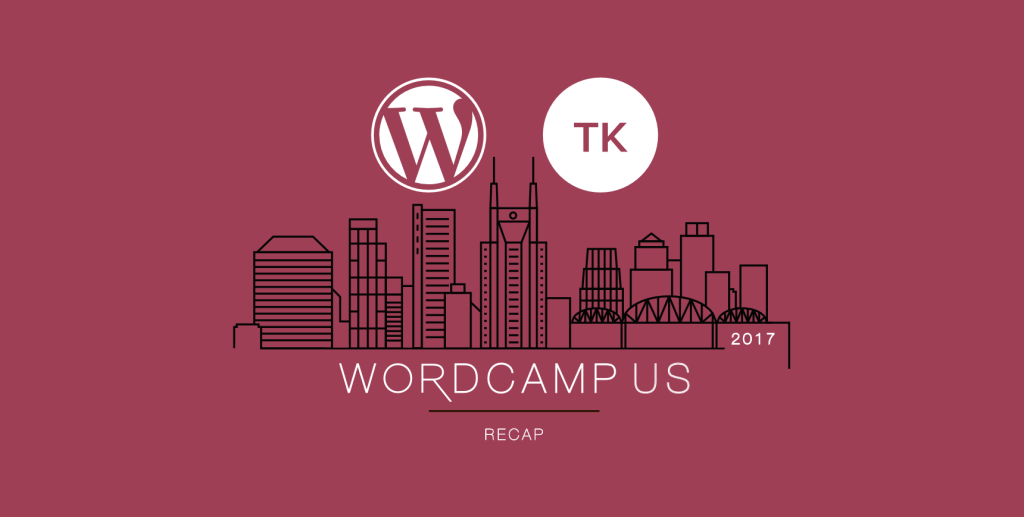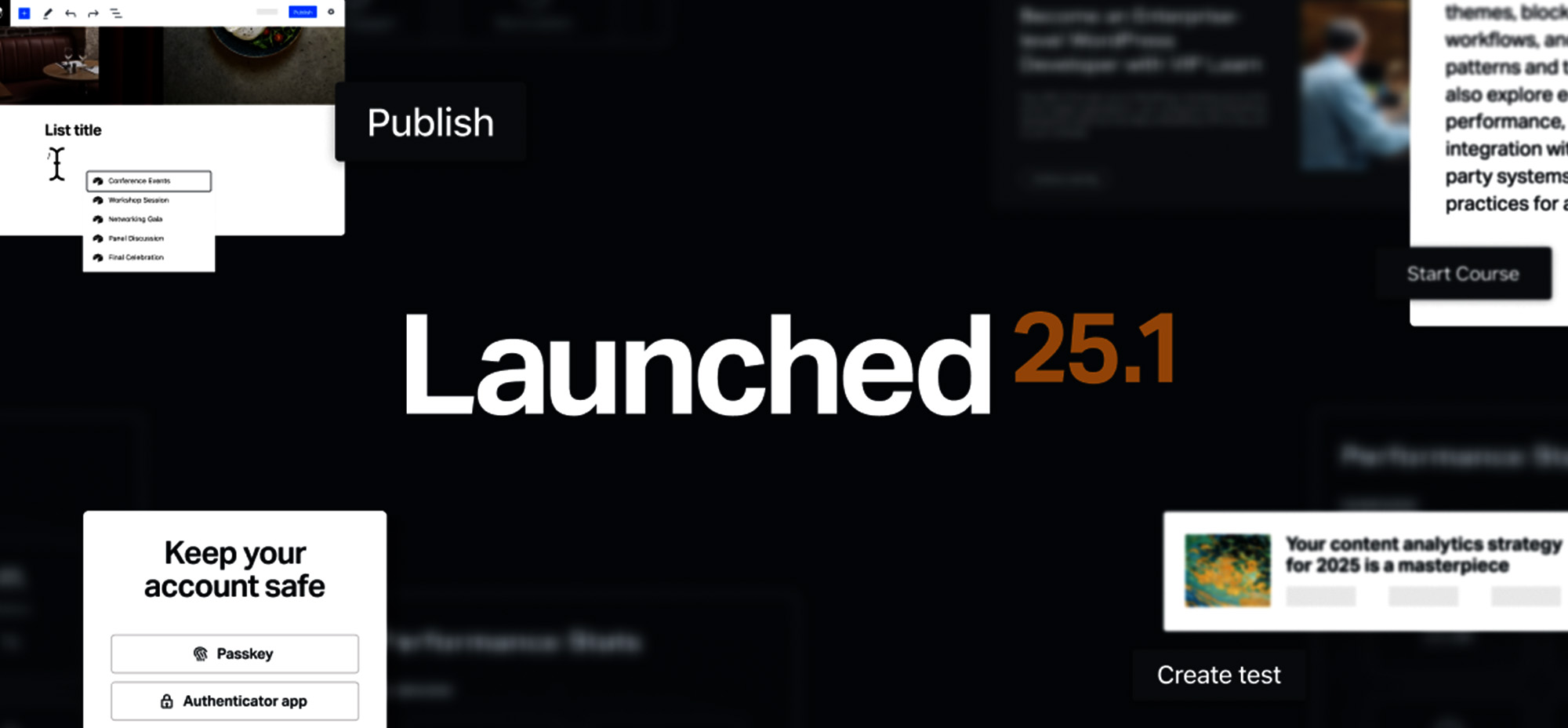The Trew Knowledge team was buzzing as they lifted off the tarmac at Toronto, Pearson Airport on their way to the Music City – Nashville for WordCamp US 2017. The city, filled with Honky Tonks and up-and-coming country artists at every corner was energized for another weekend of country music filled fun, but for a select few, the city, on this weekend, was the centre of the WordPress universe. Nashville received the honour to host WordCamp US 2017 and they did not disappoint. The venue, organizers, sponsors, speakers, and likeminded WordPress community members all stewed together to deliver a fun, fact-filled, constructive, and eye-opening experience.
After touching down and testing their bravery against Nashville’s famed Hot Chicken, the TK team was off to the Music City Centre to immerse themselves in the latest and greatest innovations with WordPress.
Accessibility Testing, Tools, and Workflow
Speaker: Rian Rietveld
The big focus on the weekend was Gutenberg, but under the veil of the new customizer, it was clear to see that most of the speakers were there to talk about web accessibility.
The accessibility conversation got started early on Friday morning, with the first speaker, Rian Rietveld – an Accessibility team member working for VIP Partner Agency Human Made. With web accessibility moving towards a global standard (and moving fast in Canada), there was almost a sense of urgency in her voice as she outlined how to be web accessible. Some of the specific points she touched on were:
- There are a wide range of amazing tools which can help with transitioning to web accessibility
- Colour contrast, no keyboard trapping, creating dynamic content, applying screen reader, and writing like the reader is 12 years old were among the first steps on the path to web accessibility
- Testing and debugging each requirement before moving on to the next is great to keep organized
She certainly showed us the “How” on a micro level, but the next speaker really nailed down the “Why?”
Managing Accessible Content on Thousands of Sites
Speaker: Jeremy Felt
We had the pleasure of hearing from Jeremy Felt who leads the web accessibility initiative at Washington State University. He instilled the idea that all content must be accessible and has provided the tools to do so, specifically for large Enterprise websites such as WSU’s.
He also touched on what he calls the “3 R’s of Accessibility”:
- Realistic – not everyone is a web accessibility expert and not every content creator is a web developer. The approach to web accessibility needs to be semantic and easily customizable.
- Resource – by this, he meant creating a community that provided the guides, training, and tools to become WCAG 2.0 compliant while also promoting a sense of empathy while building the mindset that you are helping those who require web accessible content.
- Restriction – this is specific to the way content is customized on a platform like WordPress and more specifically how new tools such as Gutenberg will make it easier for tooltips and theme support to be available while being able to update and visualize content semantically.
Security, the VIP Way
Speaker: Ryan Markel
With the risk of website hacks and data leaks higher than ever, the “Security, the VIP Way” talk was not only informative but necessary. Ryan Markel explained that there is no safe website from a security breach and noted that he has worked on websites that have no reason to be hacked. The security breach happens because they want to download something on your website.
Some of the techniques for protecting your website include:
- Force HTTPS on every website. Let’s Encrypt allows you to install an SSL Certificate for free!
- Avoid accessing code through FTP and use source control
- Validating, Sanitizing, and Escaping are critical for a secure code base
- Use two-step authentication for WordPress login access
- Jetpack has a lot of security features, both free and paid
- Make sure there is a strict code review process that needs sign off before deploying live. GitHub “protected branches” is a great tool for this
- Load plugins through code, not UI so access restrictions are in place
- Don’t allow access to the code editor
- Limit the number of administrators
- Using audit logs to keep track of who has been updating the website and where vulnerabilities may be present
The Next Phase of Growth for WordPress
Speaker: Chris Taylor
Chris Taylor, CMO of Automattic, was a joy to hear given his unique position at Automattic & his roadmap of where WordPress is heading in the near future. With the competitive market heating up, Chris doubled down on the notion that community is one of the most important aspects of what makes WordPress so successful. With WordPress, it isn’t just about making money, but building this community and leveraging it to not only grow core, but to develop new and exciting functions and features to make the WordPress platform more innovative, intuitive, and inspiring for users.
Day one of WordCamp US was anything but ordinary. The city, people, food, and WPUS experience were enough to get us locked in and ready to go for the rest of the weekend. With even more talented and innovative speakers on Day 2, we had much to look forward to.
The Importance of Information Architecture: How to Organize Content to Improve User Experience
Speaker: Monique Dubbelman
Simplicity is the name of the game when it comes to User Experience. Monique Dubbelman provided a very detailed account of how organizing your Information Architecture in a logical, semantical, and informative way, can transform your web property and make it easier for users to access and navigate the information they are looking for.
She touched on some key questions which should be answered even before the design stage:
- Am I in the right place?
- Do they have what I am looking for?
- Do they have anything better (if this isn’t what I want)?
- What do I do now?
Answering these questions outline the importance of how users will interact with your website. We learned that even the content structure and tone are important for ensuring that your website contains semantic and relevant information based on your product/service and target market.
State of the Word
Speaker: Matt Mullenweg
Whenever you see an innovator speak, it is incredibly rewarding. The entire Ted Talks platform is based on this notion. As WordPress developers, seeing the founder and driving force behind WordPress (Automattic) was an absolute treat.
Given the current structure of WordPress and the map of the platform moving forward, hearing Matt talk about Gutenberg was not only valuable but insightful and interesting. Gutenberg is set to be the primary editor in the future and with a rare showing of its functionalities, there were “oohs and ahhs” as well as a large number of sceptics.
Yes, change comes with growing pains, but Matt was keen to point out that the thing that makes WordPress unique is innovation and community. He was able to calm nerves as he outlined the future of Gutenberg and how the adaptation into digital life would be anchored by the community as a whole – essentially, we are all in this together.
Matt’s candour and enthusiasm cloaked us like a warm blanket as his confidence instilled the ideals of why we were there in the first place – because we are WordPress fanatics and the work we do today will benefit us tomorrow.
We encourage everyone to try out Gutenberg by following the link to the plugin here
In Closing
Overall, the trip was an eye-opener both technically and culturally. Although we did not come back with cowboy boots and ten-gallon hats (there is only so much room in our suitcases!), we were able to visualize the scalability of WordPress moving forward and most importantly, able to connect with the community in a deep and personable way.
Until next year WordCamp US, thanks for the insights and memories!


